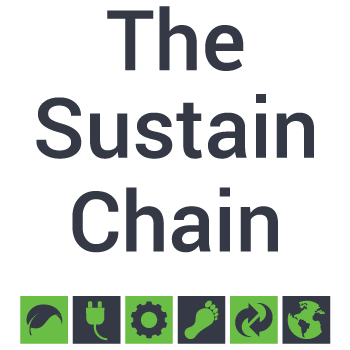Environmentally Friendly Production Methods: Reducing the Environmental Impact of Business Operations
Environmentally Friendly Production Methods to aid with environmental sustainability is a key consideration for business operations in the 21st Century. Environmental impact can be reduced by eliminating waste, participating in carbon offsetting or emission trading schemes and implementing lean production systems.
Environmental sustainability is a key consideration for business operations in the 21st Century. The imposition of emission trading schemes or carbon taxes requires that companies review and streamline their business operations to ensure as little environmental impact. Consumers are also calling for greater environmental sustainability.
Projects that companies can undertake to improve environmental impact outcomes include:
- eliminating waste in production methods
- implementation of lean production systems
- development of new technologies to reduce the impact
- voluntary participation in carbon offsetting schemes
Eliminating Waste in Production Methods
When producing any good, waste may also be produced. This can be eliminated in simple measures by reducing the amount of packaging or providing opportunities for recycling of components not used.
Another way to eliminate waste in the production chain is to review current production methods and supply chain solutions and benchmark findings against industry best practices.
Implementation of Lean Production Systems
Lean production systems, such as the Toyota Production System, aim to eliminate waste and improve quality. Efficiency is the key to a lean production system and implementation of a lean production system based on work teams can also improve employee engagement. Based on the concept of workflow and an ordered work environment, lean production systems can improve both the quality and output of work.
Lean production systems were originally developed in the assembly line process of the Toyota car manufacturing plant in Japan, however, the principles and methods have since been adapted to fit other manufacturing industries and service industries.
Development of New Technologies to Reduce Environmental Impact
Supporting the commercial development of new technologies to reduce environmental impact may be a suitable strategy for companies involved in natural resource-intensive production activities, such as brewers, electricity providers and mining companies.
Options for supporting the development of new technologies to reduce environmental impact include
- participating in venture capital partnerships where the company assists an innovator to bring new technology to commercial development;
- creating a working group of employees to research and develop environmentally sustainable practices and technologies; and
- partnering with a community organisation working in the environmental sustainability field to support the work of the community organisation.
Participating in a community business partnership may bring an advantage in corporate social responsibility ratings to a company.
Voluntary Participation in Carbon Offsetting Schemes
Environmentally responsible business practices are the main tenets of corporate social responsibility. Two ways that businesses can be environmentally responsible are through the voluntary purchase of carbon offset credits or government-regulated emissions trading schemes. To take part in either scheme to improve the environmental sustainability of the business, the carbon footprint associated with the production of the goods or services must be calculated.
Carbon Offsets
By purchasing carbon offsets, a business is investing in projects which reduce greenhouse gas emissions or otherwise remove carbon from the atmosphere. Carbon offsets are a form of compensation to the environment for the environmental harm the business causes. After calculating the business’ carbon footprint, the business purchases carbon offsets for all of its business activities or specific activities such as vehicle or airline travel or manufacturing pollution.
Carbon offsets are sold by carbon offset providers and the United Nations through the United Nations Framework Convention on Climate Change has a database of carbon offset providers and buyers. Environmentally friendly activities that carbon offset providers undertake include:
- renewable energy projects (for example solar energy, wind turbines, hydropower, geothermal energy and biofuel);
- reforestation and tree planting projects; and
- energy efficiency projects.
The practice of using carbon offsets as a method of showing environmental sustainability concerns has been criticised by environmental organisations, as not going far enough to address the environmental damage caused by business operations.
Emissions Trading Schemes
Unlike carbon offsets, which are voluntary purchases by businesses, emissions trading schemes are government-regulated schemes, predominately working on “cap and trade” systems. Emissions trading schemes target the largest contributors to environmental pollution, the heavy industries such as electricity generation, metals manufacturing and mining and paper production industries.
Emissions trading schemes have been designed to reduce the greenhouse gas in the environment by placing a cap on the amount of pollution allowed in business operations and forcing businesses to either increase environmentally sustainable production methods or purchase emissions allowances in open market trade.
In an emissions trading scheme, each business is given an allowance, if the business’ greenhouse gas emissions over the whole year will total more than the allowance, the business has a choice of either adopting practices which will reduce emissions or purchasing unused allowances from another business which has reduced its emissions levels to below the allowance level. The aim is that regardless of whether a business reduces its emissions or chooses to purchase unused allowances from other businesses, emission reductions will occur and they will be at the cheapest possible rate.
Author Bio:
Hannah Butler is a content writer and editor assistant at AssignmentPay, a leading online essay writing company. With a passion for detail-oriented work, Hannah has an exceptional ability to produce high-quality content for a wide range of online platforms.

